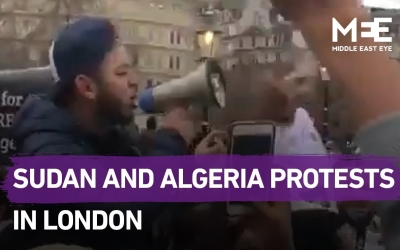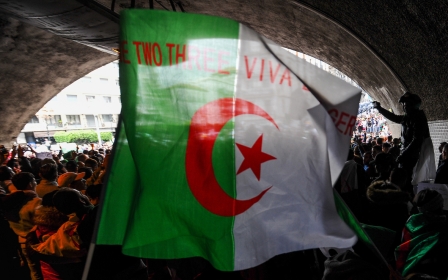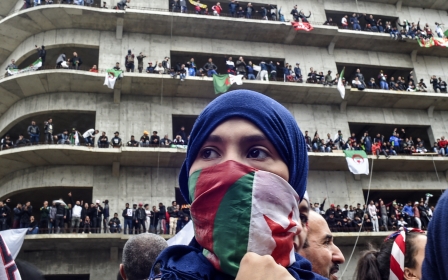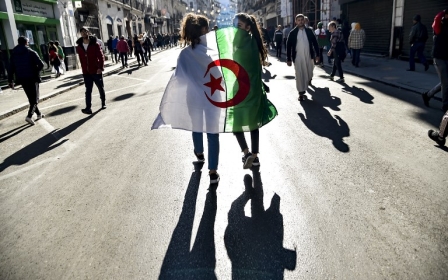Swiss court asked to protect ailing Algeria President Bouteflika from his entourage
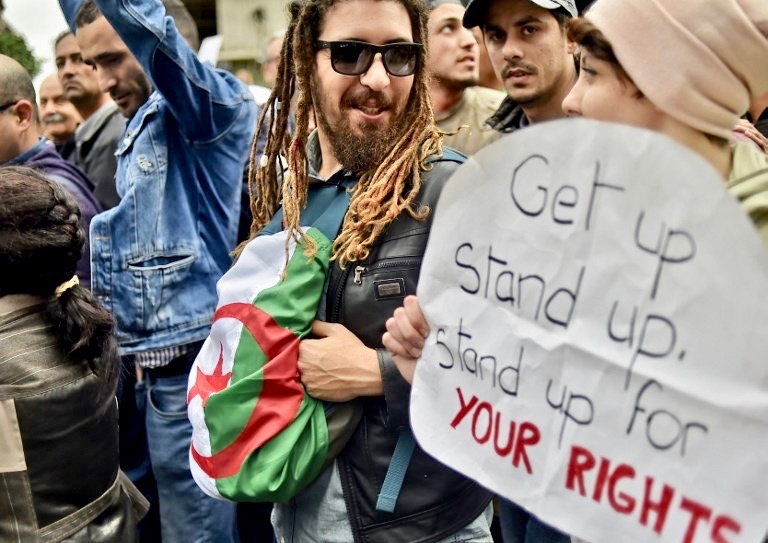
A lawyer acting on behalf of an unidentified Algerian citizen filed a petition with a Swiss court requesting that Algerian President Abdelaziz Bouteflika, in Switzerland for medical treatment, be placed under trusteeship for his own protection, AFP reported.
The petition came on Friday as tens of thousands of people protested in Algeria against the 82-year-old ailing leader's bid to secure a fifth term in the country's 18 April elections.
Meanwhile, Algerian authorities on Saturday ordered an early start to the spring university holiday in an apparent attempt to weaken two weeks of the student-led protests against Bouteflika, Reuters said. Spring break will be brought forward by 10 days, starting on Sunday instead of 20 March.
It was immediately unclear whether the Swiss court would admit the case, or whether the petition had any chance of garnering support.
Stay informed with MEE's newsletters
Sign up to get the latest alerts, insights and analysis, starting with Turkey Unpacked
Saskia Ditisheim, who is president of the Swiss division of Lawyers without Borders but did not file the petition in the organisation's name, said in the document that Bouteflika's "fragile health" left him vulnerable to "exploitation" by those around him.
The court to which she sent the document specialises in the protection of vulnerable adults and children.
"It is obvious that the Algerian president is today incapable of discernment, with a very precarious health condition and that all of his actions ... have not been carried out by him but by his political and familial entourage," said the document.
Under the Hague Convention, it would usually fall to Algerian legal authorities to determine if a citizen should be placed under trusteeship, according to Nicolas Jeandin, a Swiss lawyer and law professor at the University of Geneva.
Still, if the Swiss court deems there is an urgent need to protect a vulnerable individual, it could choose to weigh in, he told AFP, stressing that "the question is if there is urgency".
If so, in theory at least, "the Swiss judge should disregard the political backdrop ... and determine if this person needs assistance."
Bouteflika, in power since 1999, has rarely been seen in public since suffering a stroke in 2013.
He has been in Switzerland for nearly two weeks receiving what his office has called routine medical checkups.
Bouteflika's campaign manager Abdelghani Zaalane insisted on Thursday that the president's health raised "no worries".
Ditisheim said her client had already requested that the University Hospitals of Geneva release Bouteflika's medical records to determine his actual condition, maintaining it was of public interest to Algerians.
An emergency request to place someone under trusteeship can often be ruled on in a matter of days.
Still, in this case, the judge may wish to mull it over a bit longer and will probably request an expert medical opinion before ruling on the matter, Jeandin said.
Ditisheim acknowledged the sensitivity of the case and said the court may try to stall until Bouteflika is flown back to Algeria.
Bouteflika has offered to limit his term after the election and has vowed to change the "system" that runs the country, but the protest movement has galvanised discontent among different sectors, particularly students and young families.
Some long-time allies of Bouteflika, including members of the ruling party, have expressed support for the protesters, revealing cracks within a ruling elite long seen as invincible.
Friday's protests were largely peaceful, but some clashes between youths and police broke out in the evening.
Middle East Eye delivers independent and unrivalled coverage and analysis of the Middle East, North Africa and beyond. To learn more about republishing this content and the associated fees, please fill out this form. More about MEE can be found here.


